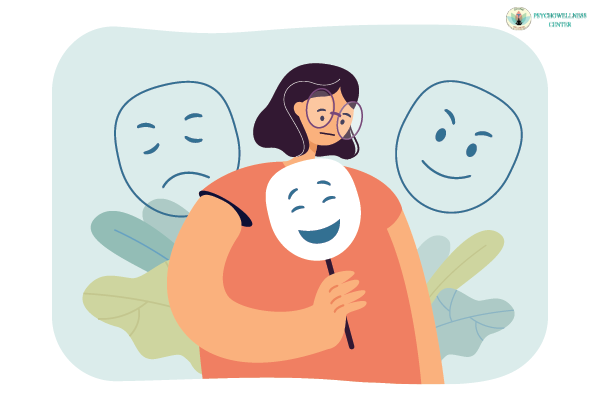Why Vulnerability as the Key to Emotional Connection

In the realm of human relationships, emotional connection serves as the cornerstone of intimacy, trust, and understanding. While many factors contribute to developing deep connections with others, one key element stands out: vulnerability. Vulnerability, against common opinion, is a sign of strength and an opportunity for honest and meaningful relationships. In this blog, we'll explore why vulnerability is the key to emotional connection, unpacking the psychology behind it, the benefits it offers, strategies for embracing vulnerability, and real-life examples that illustrate its transformative power.
Understanding Vulnerability: Defying Misconceptions
Vulnerability is often misunderstood and misinterpreted in society, with many associating it with weakness or fragility. However, vulnerability is far from being a liability; instead, it is a fundamental aspect of human experience that involves the willingness to expose one's authentic self, including thoughts, feelings, and insecurities, to others. Brené Brown, a leading researcher on vulnerability, defines it as "uncertainty, risk, and emotional exposure" (Brown, 2012).
Contrary to common misconceptions, vulnerability is a courageous act that requires strength, Resilience, and self-awareness. It involves embracing imperfection, accepting one's limitations, and relinquishing the armour of self-protection to connect with others on a deeper level.
The Psychology of Vulnerability: Building Trust and Intimacy
Psychological research supports the notion that vulnerability is essential for building trust, fostering intimacy, and strengthening relationships. According to attachment theory, developed by John Bowlby and Mary Ainsworth, secure attachment bonds are formed through the reciprocal exchange of vulnerability and responsiveness between individuals (Bowlby, 1982). By expressing vulnerability and receiving empathic responses from others, individuals develop a sense of security and emotional connection that lays the foundation for healthy relationships.
Additionally, social exchange theory posits that relationships characterized by mutual vulnerability and reciprocity are more satisfying and enduring than those based solely on self-interest (Thibaut & Kelley, 1959). When individuals share their vulnerabilities with others, they create opportunities for mutual support, empathy, and understanding, fostering deeper connections and emotional intimacy.
Benefits of Vulnerability: Nurturing Authentic Connections
Embracing vulnerability offers a myriad of benefits that enrich personal relationships and enhance overall well-being:
Authenticity: Vulnerability allows individuals to show up as their true selves, free from pretence or facade, fostering authenticity and genuine connections with others.
Trust: By demonstrating vulnerability, individuals signal their willingness to be seen and accepted for who they are, building trust and rapport in relationships.
Empathy: Sharing vulnerabilities encourages empathy and compassion from others, fostering deeper understanding and emotional support.
Resilience: Embracing vulnerability cultivates resilience and emotional strength, empowering individuals to navigate challenges and setbacks with greater courage and grace.
Intimacy: Vulnerability deepens emotional intimacy and connection in Relationships, fostering a sense of closeness and belonging.
Strategies for Embracing Vulnerability
While embracing vulnerability may feel daunting at times, several strategies can help individuals cultivate a more open and authentic approach to relationships:
Practice Self-Compassion: Treat yourself with kindness and understanding, recognizing that vulnerability is a natural aspect of the human experience.
Start Small: Begin by sharing minor vulnerabilities with trusted friends or loved ones, gradually increasing the depth of disclosure as you feel more comfortable.
Set Boundaries: While vulnerability involves openness, it's important to establish boundaries and choose appropriate contexts for sharing vulnerabilities to ensure emotional safety.
Cultivate Empathy: Foster empathy by actively listening to others, validating their experiences, and offering support without judgment or criticism.
Seek Support: Engage in therapy or support groups where you can explore and process your vulnerabilities in a safe and supportive environment.
Real-Life Examples: The Transformative Power of Vulnerability
Countless real-life examples illustrate the transformative power of vulnerability in forging deep connections and fostering resilience:
Personal Relationships: Couples who openly share their fears, insecurities, and dreams build trust, intimacy, and mutual respect in their relationship.
Professional Settings: Leaders who demonstrate vulnerability and authenticity with their teams create a culture of trust, collaboration, and innovation in the Workplace.
Community Support: Vulnerability is the foundation of support groups and recovery communities where individuals come together to share their struggles, find solace, and heal together.
Conclusion
In a world that often prizes strength and self-sufficiency, vulnerability is a radical act of courage that has the power to transform relationships and enrich lives. By embracing vulnerability, individuals can cultivate authentic connections, foster empathy and understanding, and build resilient communities based on trust and mutual support. As Brené Brown aptly states, "Vulnerability is the birthplace of love, belonging, joy, courage, empathy, and creativity.
If you are looking for the Best psychologists in Delhi, look no further than the Psychowellness Center. With multiple locations across Delhi NCR, including NOIDA, Faridabad, Janakpuri, Dwarka, and Vasant Vihar, they offer comprehensive mental health counseling services. Booking an appointment is convenient and flexible: you can session from the website of TalktoAngel. For those preferring virtual consultations, the Psychowellness Center also provides online sessions. Whether you're dealing with stress, Anxiety, Depression, ADHD, or Autism, or seeking professional guidance, their Therapists in delhi are ready to help.
Contribution:- Ms. Sulochna Arora, an expert in counseling psychologist, work with Dr. R K Suri, a professional clinical psychologist and esteemed life coach at TalktoAngel, at the Psychowellness Center.
References
- Brown, B. (2012). Daring greatly: How the courage to be vulnerable transforms the way we live, love, parent, and lead. Avery.
- Bowlby, J. (1982). Attachment and loss: Vol. 1. Attachment (2nd ed.). Basic Books.




SHARE